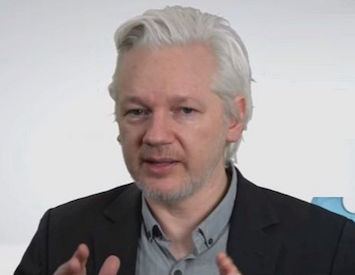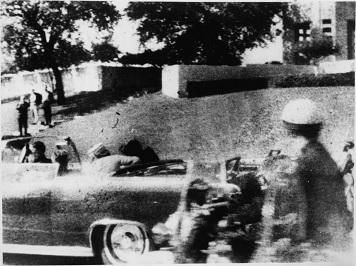A British court's refusal to lift an arrest warrant on Julian Assange dispels any doubts that the case against him is a political one, writes James O'Neill.
ON 13 FEBRUARY 2018, a British Judge ruled against an application by lawyers acting for Julian Assange that the arrest warrant that was extant for his failure to turn up to the court should be quashed.
The decision – and some additional facts that have been revealed due to the diligence of an Italian journalist Stefania Maurizi – dispels any lingering doubts that the Assange case is a political one, aimed at incarcerating a man whose organisation, WikiLeaks, has proved a persistent embarrassment to the British and American establishments.
In August 2010, the Swedish prosecutor’s office issued an arrest warrant for Assange. He was alleged to have sexually assaulted two women in Stockholm. Assange was arrested in Britain pursuant to a European arrest warrant and released on bail. On 19 June 2011, prior to an extradition hearing in London, Assange entered the Ecuadorian embassy in London. He has remained there ever since — a period now approaching seven years.
In May 2017, the Swedish authorities dropped the sexual assault charges. That obviated the need for either an arrest warrant or an extradition. Nonetheless, the British have pursued Assange on the breach of bail charge, at a cost of more than UK£4 million (AU$7.12 million). This for an offence that carries a maximum term of six month’s imprisonment. Clearly, there were other factors in play than just the pursuit of a bail jumper.
Italian investigator Maurizi, using freedom of information requests, and with the support of her newspaper Repubblica, has unearthed some of the real motives underlying the British attitude. It has nothing to do with “justice” and everything to do with kowtowing to the Americans — the latter making no secret of their desire to see Assange prosecuted for treason and locked up for a very long time.
Maurizi showed that the Swedish authorities wanted to drop the sexual assault charges back in 2013, but were persuaded by the British to keep the case going.
The British efforts included dissuading the Swedish authorities from coming to London to interview Assange, despite repeated offers from him, and a history of such interviews in 44 other extradition cases involving Sweden and the United Kingdom.
The Swedish prosecutor, Marianne Ny, wrote to the Crown Prosecution Service on 18 October 2013, advising her British contacts that Swedish law would not allow the extradition case to continue. This followed an earlier email from the British to the Swedish authorities, saying 'don’t you dare get cold feet'.
That is hardly a proper legal-based approach to extradition proceedings.
In another email from the Crown Prosecution Service to the Swedish authorities, it was stated:
'Please do not think that the case is being dealt with as just another extradition.'
Maurizi was only able to obtain a small number of the relevant emails because, astonishingly, the Crown Prosecution Service had deleted most of the emails relating to Assange’s extradition case. It would be naïve to assume that this was done inadvertently. Rather, it is far more likely that the destruction was deliberate. One might argue that was an attempt to avoid the release of further embarrassing details that would assist Assange in his attempt to get justice.
The judge hearing the application was unpersuaded, notwithstanding the information disclosed in the emails and the deliberate destruction of other emails, that the Crown Prosecution Service had acted inappropriately. The judge also deprecated the findings of the United Nations Working Group on Arbitrary Detention.
That working group determined, in February 2016, that
'... the arbitrary detention of Julian Assange should be brought to an end, that is physical integrity and freedom of movement be respected, and that he should be entitled to an enforceable right to compensation.'
In October 2017, two clinicians wrote an article for The Guardian, in which they stated:
'While the results of the evaluation (of Assange) are protected by doctor- patient confidentiality, it is our professional opinion that has continued confinement is dangerous physically and mentally to hurt and a clear infringement all his human right to health care.'
The British also have disregarded that medical judgement.
A further example of the measures the British are willing to go to is evidenced by the breach of the Vienna Convention on Diplomatic Relations, to which the United Kingdom and Ecuador are both parties.
The Ecuadorians have conferred diplomatic status on Assange. Under the terms of the Convention, as former British diplomat Craig Murray has pointed out, the British have very limited rights with regard to Assange once he had diplomatic status conferred upon him. He cannot now be arrested and should be granted safe passage out of the country.
This is yet another example of the double standard that is applied with respect to international law when countries presume that they have the right to ignore international obligations when it does not suit them.
Further evidence that this case is all about politics and not about the legal rights of an individual is evident from the appointment of the judge, Emma Arbuthnot, who heard the case. She should, properly, have disqualified herself on the grounds of apprehended bias.
According to further evidence published by Craig Murray, Arbuthnot's husband is one of only three directors of a company called Security Intelligence Consultancy — a company with close links two British intelligence. The other directors are Sir John Scarlett, the former head of MI6 and, as the Chilcott Report made clear, a principal player in the selling of the Iraq war to the British people on the basis of falsified intelligence about Iraq’s non-existent weapons of mass destruction.
What, then, has been the Australian Government’s response on behalf of one of its citizens subject to an appalling level of treatment? As far as one can judge, the response has been one of total silence.
The message is clear: if you offend the United Kingdom and/or the United States by revealing more than just uncomfortable truths, but positive evidence of malfeasance and criminality of a grand scale, then you are on your own. Do not expect support from your government, notwithstanding its much-vaunted promotion of the “rules-based international order”. It will not care one iota as you continue to rot in illegal detention.
Read the documents obtained by Stefania Muarizi under freedom of information requests HERE.
James O'Neill is a former academic and has practised as a barrister since 1984. He writes on geopolitical issues, with a special emphasis on international law and human rights. He may be contacted at joneill@qldbar.asn.au.
Sweden continues to violate multiple UN rulings to release our editor Julian Assange. https://t.co/Mb6gXlz7QS pic.twitter.com/B1oonfCqFt
— WikiLeaks (@wikileaks) May 3, 2017
United Nations declares Sweden and the United Kingdom has arbitrarily detained Assange since 2010.

This work is licensed under a Creative Commons Attribution-NonCommercial-NoDerivs 3.0 Australia License
Monthly Donation
Single Donation
Escape with an IA Subscription today.











